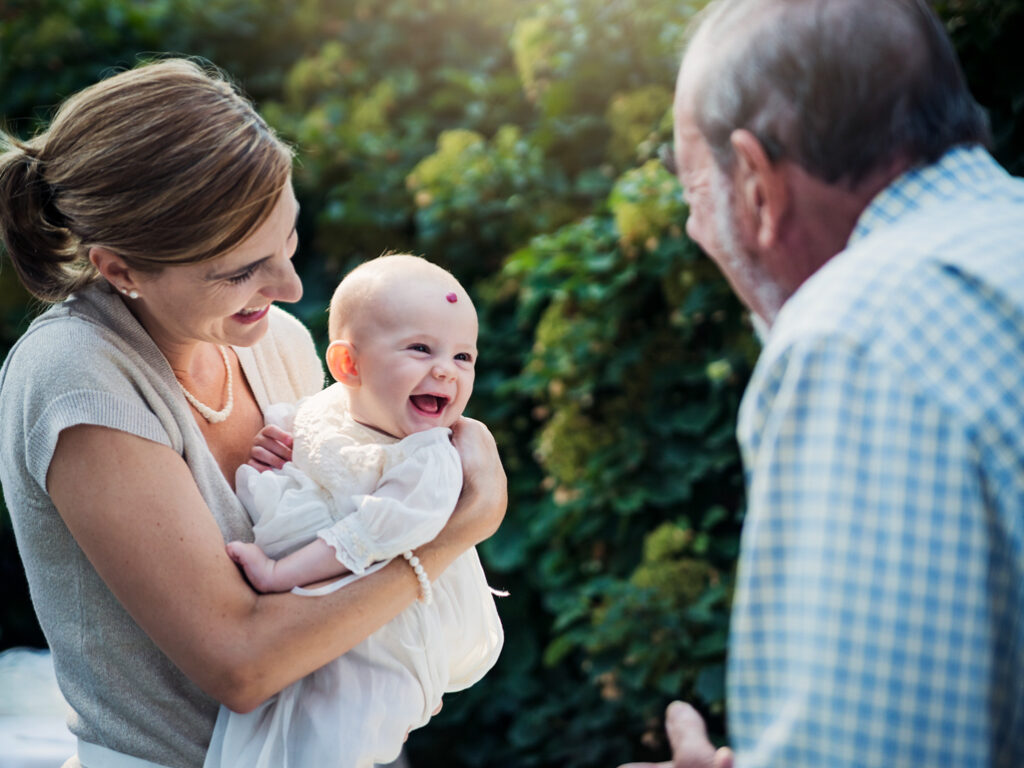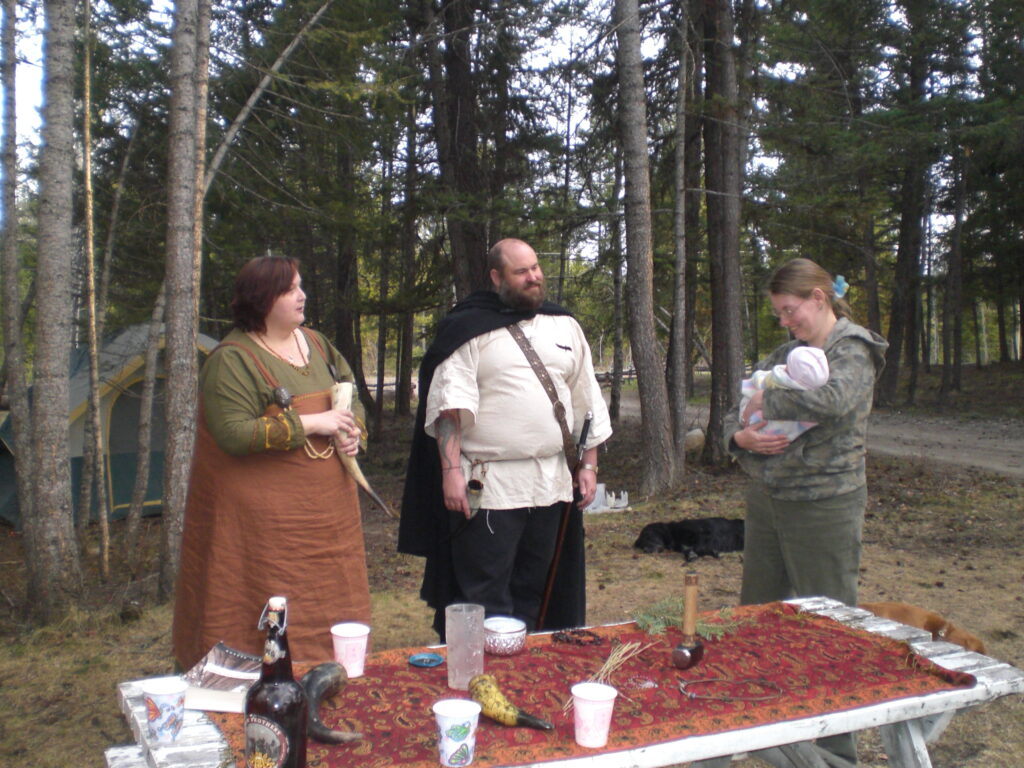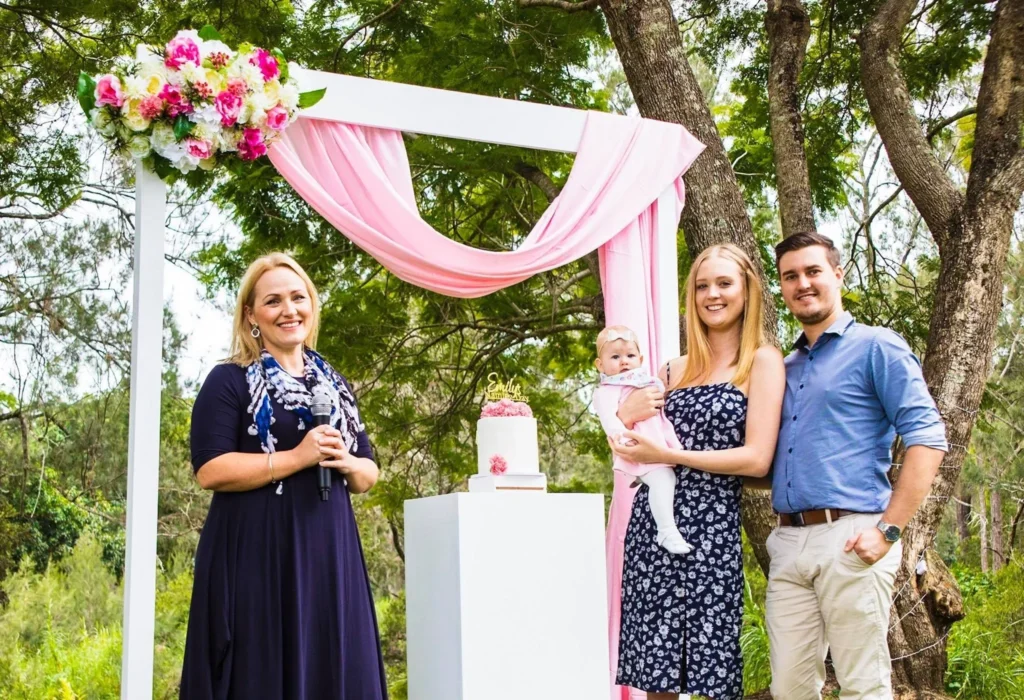What’s A Naming Day: As a nonreligious alternative to religious christenings, Naming Days are becoming more and more important in the lives of families in the UK. Many people choose to have a nonreligious Naming Day ceremony instead of tying their child’s name to a specific Christian family church. This way, they can give their child a unique and memorable welcome.
The Naming Day service is different from a standard christening because it is led by a licensed celebrant instead of a vicar or priest. With this nonreligious way, families can make the ceremony fit their beliefs and points of view, making it a reflection of their tastes and points of view. So, Naming Day is an important and open celebration that doesn’t depend on a family’s religion. It lets families show their love, commitment and hopes for the future of their child in a way that fits with their own beliefs.

So what is a Naming Day ceremony?
The main purpose of a naming ritual is to introduce and welcome the child into the family officially. It is also a time for parents to make a promise to be devoted and caring parents in front of their loved ones. It lets everyone take part and share their unique connection with the child. It also shows that the parents really care about the child’s future growth and are committed to loving and supporting them.
This isn’t just a formality; it’s a beautiful party centered on the child. As the child’s main caretaker, you take center stage to show your unshakable love and commitment, leaving a lasting mark on their early years. Sharing an experience with friends and family not only strengthens family ties but also creates a safe and caring environment for the child. The ceremony of giving a child a name becomes a special and loved event that marks the start of a path full of love, care, and community service.
A typical Naming Day service includes
The process of naming the baby includes the following important parts:
Welcome: First, I’d like to make some friendly introductions and give a big welcome to everyone who has come to enjoy this important event.
As the first reading, read a reading that is especially meaningful to the family. This will set a mood of reflection and thought for the event.
Naming the Child: If you want to, you can talk about why you chose while officially announcing and confirming the child’s full name.
Parents’ Promises: Say in your own words that you will be loyal and caring parents who will set the child up for success.
What Commitments Do the Supporting Adults Have? Describe the supporting adults’ commitments and stress their parts in the child’s life. There is no limit on the number of adults who can help, which shows that there is a wide range of care workers.
Grandparents’ pledges: Include promises from your grandparents to make the event more interesting for people of all ages.
As the event comes to a close, give a reading that sums up the main ideas and adds one more inspiring touch.
In your final thoughts, summarize what the event was all about and thank everyone who came.
Sealing a Commemorative Certificate: Make the process official by signing a commemorative certificate. This will be a permanent record of this important event.
As the ritual comes to a close, give the child a special gift that shows your love and best wishes for them as they start their journey through life.
Do I need to name godparents for a Naming Day?
At a baptism, the godparent usually plays a big part in showing the child how to follow Christ. You can also choose to name your child after helpful people who promise to be there for them no matter what during a nonreligious ceremony. This job could be called Guideparent, Sponsor, Mentor, Guardian, or anything else you want.
You make the choice, so you can add a personal touch that fits the way your family works and what they believe in. These caring people offer to help guide, support and pay attention to your child as they grow up, creating a special bond that will last a lifetime. No matter what you call it—Guideparent, Sponsor, Mentor, Guardian, or something else—the main thing that matters is that you promise to make a big difference in the child’s growth and development.
What is the age limit for a Naming Day?
On Naming Day, customs can be used to honor children of any age, unlike christenings, which are usually only for babies. Naming Day traditions are great for families with stepchildren or adopted children because they bring the family closer together.
Naming Day rituals are one of a kind because they can be used in many different ways. Along with the child in question, other bigger children can be a part of the ceremony to make it more of a happy family event. This flexibility lets families change the service to fit their needs, making sure that every child, no matter their age or background, feels loved and welcome on this special day. Naming Days ceremonies are a flexible and personal way to officially recognize and honor each child’s place in the family. They help build a sense of love, belonging, and a shared identity.
What about Naming Day Gifts?
Gifts that are unique and made just for the baby on Naming Day are a beloved custom. The best gifts come from close family members, sponsors, guardians, or guide parents. Personalized gifts are great because you can add the child’s name to them, making the party more special.
There are many great Naming Day gifts at Born Gifted that are perfect for babies and their families on this special day. You can choose from a wide range of thoughtful and unique items in our collection to find the perfect gift to mark an important event and make memories that will last a lifetime. Our collection of keepsakes, jewelry, and personalized items with the child’s name on them is meant to make the Naming Day party truly unforgettable for the child and their family.

What’s the point of a naming day?
A naming ceremony is a wonderful way to celebrate the birth of a new baby or to welcome an adopted child or step-children into your family and wider community. Many families choose to hold a naming ceremony to celebrate their child’s arrival.
A celebration, to name a baby, is a happy way to celebrate the birth of a new child or to welcome adopted or stepchildren into the family and community. Families often hold a naming ritual to honor and remember the birth of their child.
Name-giving ceremonies don’t have age limits, so bigger kids can be a part of the same emotional event that their parents or guardians plan. Even though the event doesn’t mean much legally, it’s a great chance to show the child you love and support them in public.
At the Birmingham Register Office, there are celebrants with a lot of experience whose job it is to make the naming service an unforgettable event. By making the service fit the child’s age and the way the family works, these celebrities make the party special and memorable for everyone.
What happens on naming day?
During the ceremony, parents state their love and commitment to their child, acknowledge the role of family and friends, and declare hopes for their child’s future.
Parents show their love and commitment to their children through naming rituals. They also show how important friends and family are and talk about their plans for the child’s future. Symbolic family activities like planting trees, lighting lights, making hands and footprints, or doing sand rites are often a part of these ceremonies.
These parties can be anything from big events that last all day to small events that only last 20 minutes. It’s important to note that naming rituals can be used for older kids, adopted kids, stepchildren, and babies.
An important charitable group in this area is Humanists UK. Anyone who wants to join the Humanist Ceremonies network and become a humanist speaker can get training and get their credentials from them. Through this network, humanist celebrants work together to make naming ceremonies that are important, unique, and true to the families’ values and beliefs.
What religion has a naming day?
Many religious traditions call for naming ceremonies to take place at a very specific time after the child is born – in Hinduism, for example, it takes place on the 12th day of a child’s life, while is Islam it occurs after one week.
Based on the faith, name events can happen at different times after a baby is born. Hindus believe it happens on the child’s twelfth day, while Muslims believe it happens after the first week. There is no one “best” time for nonreligious naming events, so people can be flexible based on their preferences and needs.
When planning a naming event that isn’t religious, there are a few things to keep in mind. Parents usually pick a time that works with the baby’s health to make sure the baby is strong and healthy enough to go to the event. Families can also pick a day when close family and friends are free, which builds community and encourages everyone to celebrate together.
Since there aren’t any set religious rules, the ceremony can be set up in creative ways, which makes it more special and one-of-a-kind. When the parents are ready to introduce and name their child in front of their family and friends, the focus changes to the family’s values, which makes it possible for everyone to get back together happily.
What do you say at a naming ceremony?
The Ceremony
Today, parent 1 [name] and parent 2 [name] wish to share with you all their hopes for child’s name future. Together they will be making promises to love and nurture child’s name as he/she continues his/her journey through life’s rich tapestry. cherish, love and nurture their son/daughter as he/she grows.
Today is a special day because friends and family are getting together to celebrate the happy coming of a new child into our lives. Parent 1 (name) and Parent 2 (name) want to tell you about their dreams for their child’s future. They promise each other that they will love and care for their child as they go through the complicated fabric of life.
We’re all here to help Parent 1 [name] and Parent 2 [name] start this exciting new journey, but some of us have been chosen to play more important parts in raising the child. Along with Parent 1 [name] and Parent 2 [name], these wonderful people, who are called Guide Parents, will promise to love, care for, and admire their kids as they watch and help them grow. Everyone needs to work together to give the child a caring and loving place to start their journey through life.
Is a naming day the same as a birthday?
It is an annual celebration commemorating the naming of a person and serves to calculate his or her age. Babies are named the same day they are born. People receive presents from friends and family on their nameday. It is essentially what we now call a birthday.
Nameday is a yearly event that celebrates a person’s birth and is used to figure out how old they are. Kids are given their names on the same day they are born, so the ceremony of naming them is connected to the real moment of birth. Namedays are important in language and culture, and they are marked in the same way that birthdays are today.
During name day celebrations, friends and family are very important because they add to the happiness by giving gifts to the person being honored. The fact that you bought them a gift on their birthday shows that you love and care about them.
Nameday is a cultural tradition that adds a special touch to celebrating important events in life by helping people feel connected to their names. Friends get together to honor and enjoy the person who has been named, which strengthens family and community ties.

In many countries around the world, name-days are celebrations that are like birthdays in terms of the joy and emotion they bring. They are things like being happy to hear someone’s name and the passing of time.
Let’s think about the main idea that has been running through our time together today as we remember this event.
How closely are our lives connected? A big part of this ritual was making the caring and friendly ties that connect us stronger, with a focus on the strong connection that has now been made between Hunter and all of us. May our love and support for each other grow stronger over time. May our ties with Hunter and with each other make us all happy and better people.


